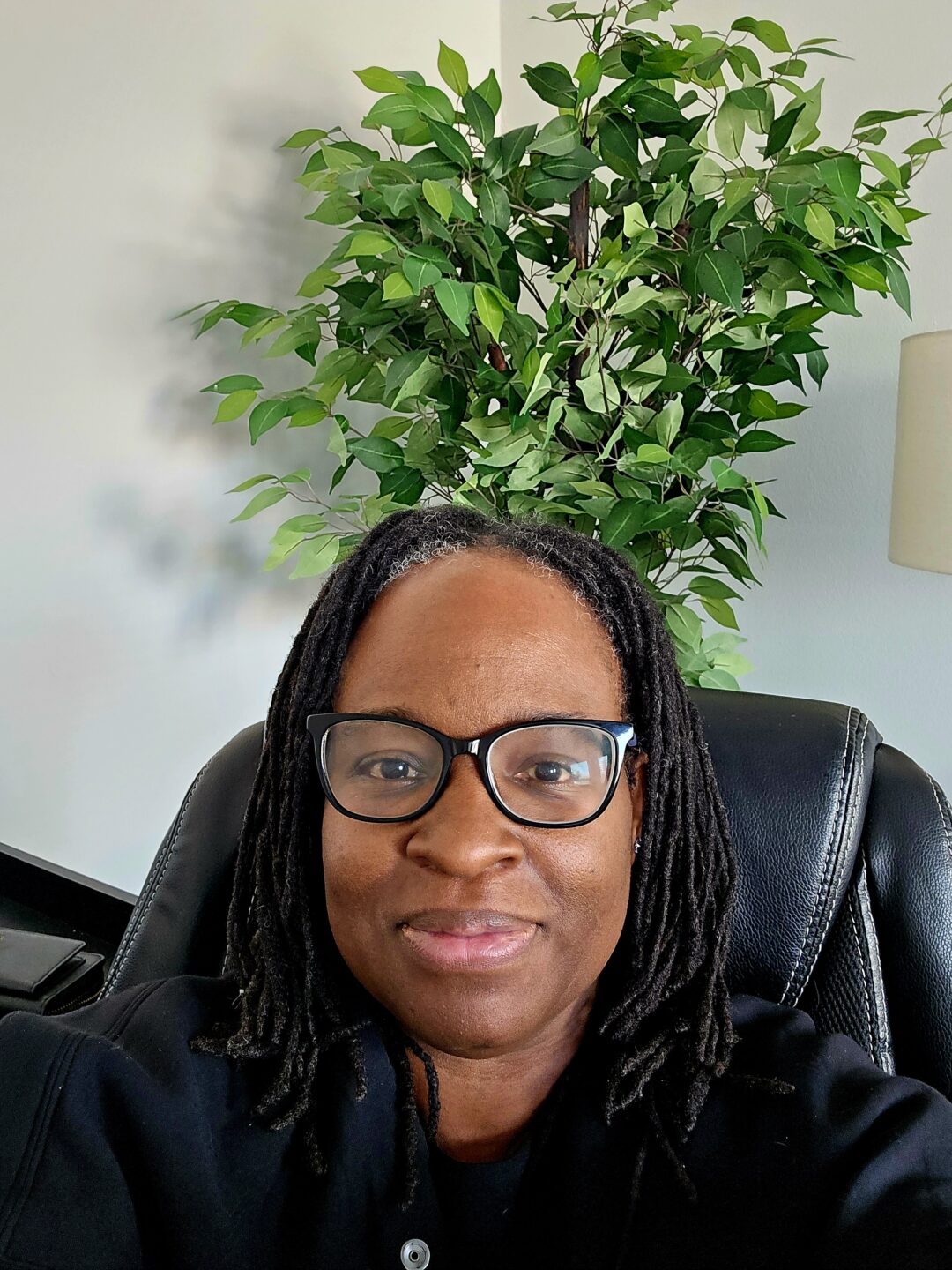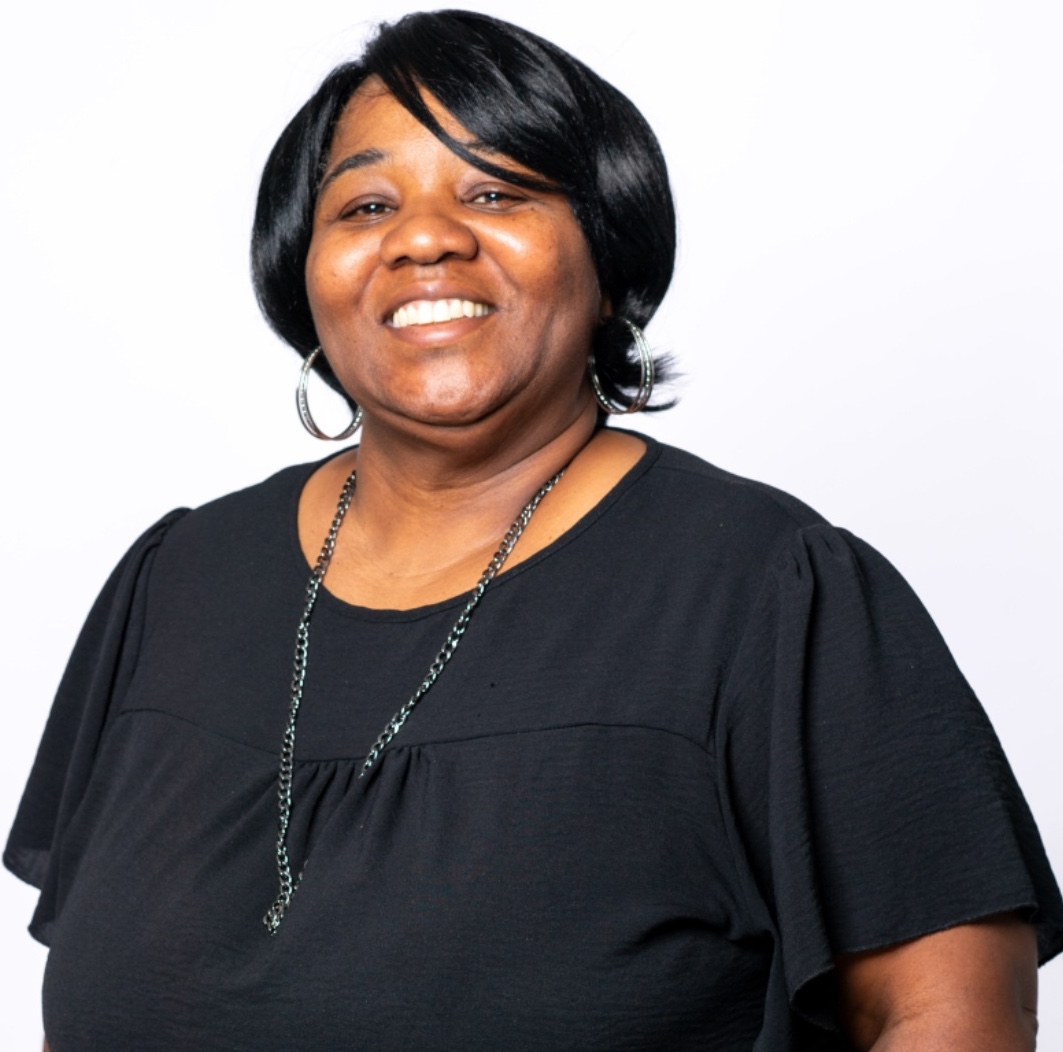If you attend a NAMI meeting with Felicia Embry or Dee Menard, you’ll probably cry a little, laugh a lot, and return home feeling seen. That’s why they’re the perfect facilitating team for Sharing Hope.
As Dee explains, the new program — a series of three conversations either in person or online — is all about creating a safe space for people who identify as Black and/or of African ancestry to explore topics related to mental health.
“In the Black community, there’s that idea that you don’t talk about mental illness,” Dee says. “And you certainly don’t talk about it with someone who doesn’t look like you.”
Dee’s experience with NAMI stretches back to her days in California, where her mother-in-law was a bookkeeper for another affiliate. (“My kids have done NAMIWalks since they learned to walk,” she says.) She reconnected with NAMI in Colorado Springs after her daughter was diagnosed with a personality disorder. “When someone you love is diagnosed with a mental illness, you often feel alone,” she says. “But I never did because I had NAMI.

“NAMI shares knowledge,” she continues, “and knowledge leads to empathy and kindness and love, and all of that creates a safe space and breaks down stigma.”
Like Dee, Felicia has seen how gathering with peers at NAMI can lift spirits.
“It just takes one person to share something in a meeting,” she says, “and it creates this domino effect. The next thing you know, we’re all crying and we’re all sharing phone numbers and we’re asking, ‘When can we do this again?’”

For both of these women, Family-to-Family — NAMI’s evidence-based course for family and friends of individuals with serious mental health conditions — has been a focal point. Felicia credits her experience as a student with helping her “understand the legal aspects, how to navigate medication, local healthcare providers, all of it.”
As captured in a video that debuted at last year’s fundraising breakfast, her son Quentin was diagnosed with schizophrenia in 2017, when he was a sophomore in college. She’s quick to acknowledge how difficult it was to navigate his journey.
“We were kind of getting through it, but then COVID hit, and then we had to travel across country to see my mom, then my son was in full-blown psychosis, and my mom is bipolar, so it was a whole hot mess!” Felicia says, laughing. It’s that sense of humor but also that sense of acceptance that defines both Felicia and the environment one finds at NAMI meetings. “We shouldn’t be ashamed or feel a stigma” when dealing with mental illness, Felicia suggests. “Being with a group of people like me … I didn’t feel judged. We need a tribe. We need a village.”
Meanwhile, as Dee credits the course — which she now teaches — with helping her in her new career as a licensed therapist.
“Every time I teach Family-to-Family, I learn something new,” she says. “I’m fortunate to have heard so many people share their stories.”
“Sharing Hope is all about breaking down that barrier [to seeking help] and creating a space where people feel safe to talk about what’s going on in their head and the heads of people they love, without judgment."
Dee Menard
Dee fully expects the Sharing Hope meetings to offer a similarly positive impact for the Black community: “Sharing Hope is all about breaking down that barrier [to seeking help] and creating a space where people feel safe to talk about what’s going on in their head and the heads of people they love, without judgment. There’s a group of people here to support you.”
“Sharing Hope is all about breaking down that barrier [to seeking help] and creating a space where people feel safe to talk about what’s going on in their head and the heads of people they love, without judgment.”
Join Sharing Hope
Note: For more information about Family-to-Family, which meets 6-8:30 p.m. Wednesdays, April 9 through May 28, click here.